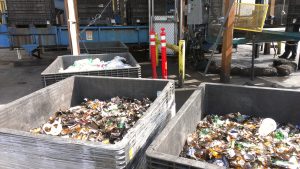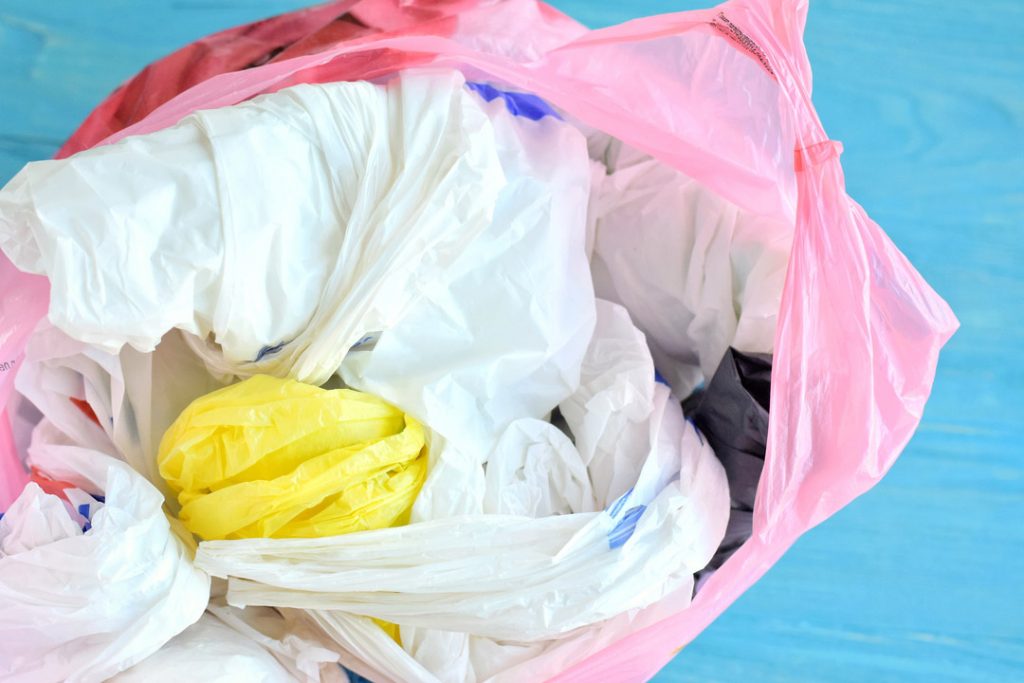 The growing smiles you see among recycling collectors and processors are because of continuing market improvement.
The growing smiles you see among recycling collectors and processors are because of continuing market improvement.

 The growing smiles you see among recycling collectors and processors are because of continuing market improvement.
The growing smiles you see among recycling collectors and processors are because of continuing market improvement.
 The value of curbside-collected paper and steel is down slightly at the start of April, though some plastics have experienced boosts.
The value of curbside-collected paper and steel is down slightly at the start of April, though some plastics have experienced boosts.
 California voters want a statewide ban on single-use plastics bags, and they’d like stores to keep the fees charged for paper and reusable bags, election results show.
California voters want a statewide ban on single-use plastics bags, and they’d like stores to keep the fees charged for paper and reusable bags, election results show.
 UNICOR, also known as Federal Prison Industries, has shut down its electronics recycling facilities at several prisons across the country, leaving a sizable gap in the U.S. e-scrap recycling chain.
UNICOR, also known as Federal Prison Industries, has shut down its electronics recycling facilities at several prisons across the country, leaving a sizable gap in the U.S. e-scrap recycling chain.
 CalRecycle last week convened stakeholders to continue to discuss the possibility of requiring producers to play a role in the end-of-life management of packaging materials.
CalRecycle last week convened stakeholders to continue to discuss the possibility of requiring producers to play a role in the end-of-life management of packaging materials.
 The City of San Antonio began accepting plastic bags in curbside single-stream carts two years ago. In its first year, 550 tons were recovered through the program, but that number fell by more than two-thirds in the second year.
The City of San Antonio began accepting plastic bags in curbside single-stream carts two years ago. In its first year, 550 tons were recovered through the program, but that number fell by more than two-thirds in the second year.
 Not surprisingly, the great glass debate is continuing into 2017. Four municipalities from different corners of the country recently made moves or began discussions to try to recover glass in a more cost-effective manner.
Not surprisingly, the great glass debate is continuing into 2017. Four municipalities from different corners of the country recently made moves or began discussions to try to recover glass in a more cost-effective manner.
 A comprehensive industry study has put a dollar amount on what U.S. materials recovery facilities and their municipal partners are spending to move recovered glass downstream.
A comprehensive industry study has put a dollar amount on what U.S. materials recovery facilities and their municipal partners are spending to move recovered glass downstream.

Bag producers pledged to support municipal programs in educating the public on proper bag recycling. | Ivanova Tetyana/Shutterstock
A coalition of bag manufacturers is committing to use more recycled plastic in the coming years. Recycling stakeholders are reacting to the pledge, which will include both post-consumer and post-industrial resin.

In its regulations, CalRecycle put the regulatory burden on local officials, who must ensure homes and businesses are provided with – and actively use – food scraps and yard debris collection services. | SaskiaAcht/Shutterstock
Local governments in California must ensure residents and businesses have organics collection service, under rules finalized by state regulators recently.
